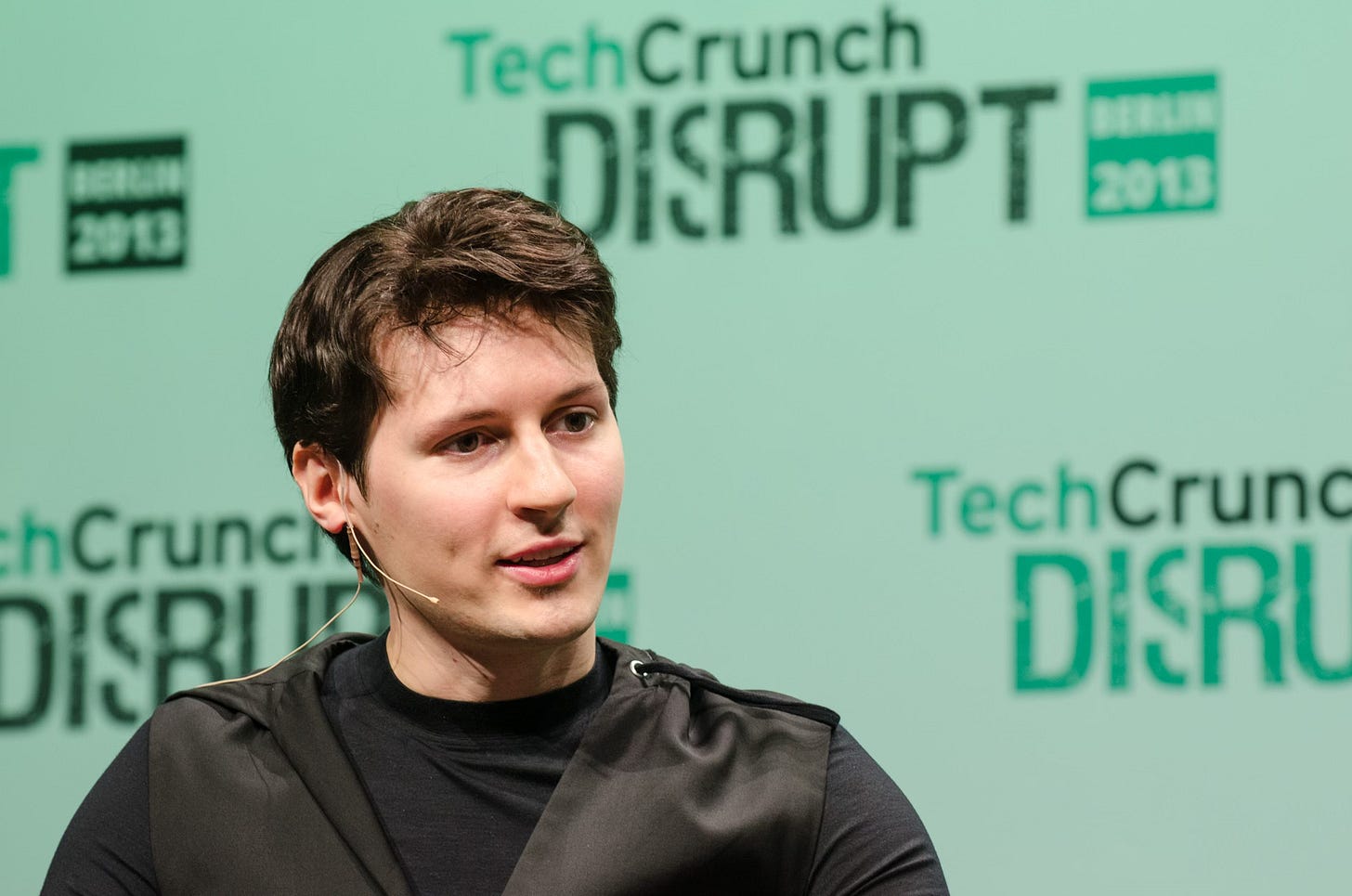Pavel Durov Isn't a Free Speech Martyr
Can critics like Elon Musk and Tucker Carlson grapple with the fact that the Telegram founder was detained in an investigation that includes grave crimes related to child pornography?

Immediately after news broke of Telegram founder and CEO Pavel Durov being taken into French custody at a Paris airport on August 24…


